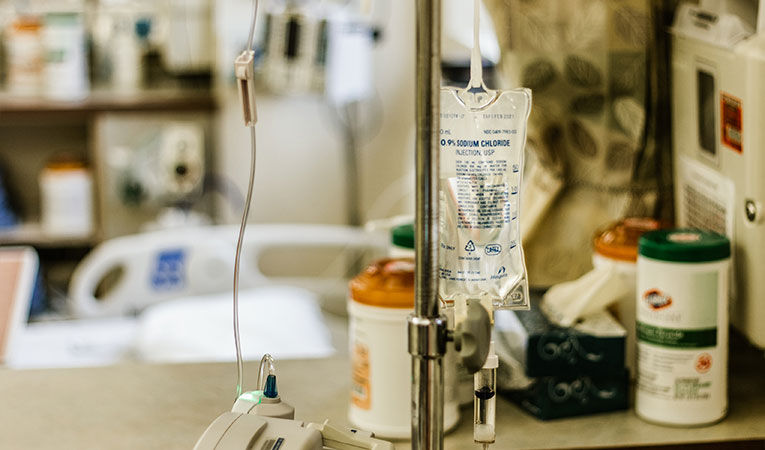Preparing for Study Abroad: 9 Things You Need to Know
Once you find a great study abroad program that aligns with your goals, it’s time to actually begin preparing yourself for the big trip. What should you pack for study abroad? Do you need travel insurance? How should you handle money and phones while abroad? These are all important questions to answer, and we’re here to help! Read on for our best tips on how to prepare for studying abroad.separator_solid 1. Apply for a passport and visa You must have a valid passport to travel and study abroad. If you already have one, be sure to double-check that it’s not expired and that it won’t expire within 6 months of your intended return to the US. Also, make sure that you have blank pages in your passport if you’ve traveled abroad before. For passport newbies, US citizens can directly apply for a new passport at selected post offices, federal or state courts of records, or at a State Department passport agency. It can take anywhere from 6 to 12 months to get a passport, so make sure you start on this one well in advance. Yes, you can expedite the process, but it’ll cost extra. It’s better just to be timely. If this is your first passport, don’t forget to bring: If you’re renewing an old passport, you can leave behind your birth certificate in exchange for your expired passport. In addition to a passport, you may need a visa to study abroad. Different countries have different visa requirements, so look up your intended study abroad destination’s regulations on the State Department’s website. You can also contact the nearest embassy or consulate of the country you plan on going to in order to receive information about visa requirements and any special travel restrictions. Similar to passports, visa applications can take several months to process, so don’t delay in applying! These can also require a physical and a background check, based on the country, so ensure you’re prepared for that. If your study abroad trip is during the summer, or under three months long, you may not need a visa. Most countries will allow students to enter the country for up to 90 days on a tourist visa. However, this isn’t true of all countries so definitely make sure you check and double-check what kind of visa (if any) you’ll need. 2. Visit a doctor Plan on visiting your doctor and getting a physical before you leave to ensure you are in good health. Bring along a copy of your medical records in case of an emergency overseas. Furthermore, it’s important to know the host country’s immunization requirements and become immunized before your departure. Most programs will advise you on the types of vaccinations you’ll need (if any) while abroad, but for the latest up-to-date disease information you may also want to contact the Center for Disease Control and Prevention. Also, if you have a critical medical condition that requires prescription drugs, you may want to bring enough with you to last your entire time abroad (if possible). Prescription drugs must be carried in correctly labeled containers to prevent being mistaken for illegal drugs. It’s also wise to bring a prescription or note signed by your doctor. 3. Get travel insurance It’s important to have a reliable health and accident insurance policy while you are studying abroad, as well as coverage for emergency evacuation and repatriation (but let’s hope it never comes to that!). Your health insurance provider might cover you abroad (not all do, though), but even if it does, there are a couple of things that travel insurance will cover that health insurance won’t. For example: You can get travel insurance through providers like WorldNomads and SafetyWing. Read more: Study Abroad Insurance: All You Need to Know Before You Go 4. Shop around for an affordable plane ticket These days, finding cheap airplane tickets has turned into an art of timing and luck. Fares can vary greatly depending on when you want to fly and where you are buying your ticket from. Additionally, student travel agencies can provide the oft-most flexible and inexpensive tickets for students traveling abroad. Before buying a bargain fare though, find out just how flexible flight date changes are. After all, you don’t want to be forced to buy a whole new ticket if you decide to stay overseas a little longer! Fortunately, most airlines will let you change your ticket for $100 + the difference in price, while some tickets even come with free changes. We also recommend doing your research before planning to arrive more than a few days prior to your intended program start date. While the few extra days may allow for a jump-start in adjusting to the new environment or jet lag recovery, arriving early may create problems with your visa. A bit of research can help prevent a disaster at border control! Read more: How to Travel like a Pro: Airport Tips & Tricks for Stress-Free Travel AFFILIATE StudentUniverse Go Overseas is happy to partner with StudentUniverse to help our community find the best deal on flights for your meaningful travel experience! StudentUniverse has exclusive deals with airlines to get you the lowest possible airfare. Learn more 5. Research your destination’s local customs Before traveling abroad, take some time to better familiarize yourself with your host country. Understanding the culture, history, geography, economy, government — and anything else – will help you avoid faux pas and improve your immersion. Your study abroad experience will be enriched and your time spent more meaningful if you put in the work to make the most of it. Even better, talk to others who have been there and seek opportunities to watch movies and read more about the country and its culture. Additionally, it would help to avoid accidentally offending others (such as pointing with your thumb or not slurping your noodles at dinner!). The Department of State has quick notes on over 150 countries; these serve as a great starting point for up-to-date information for your intended travels (that is, if you can break away from Wikipedia for 5 seconds!).
Preparing for Study Abroad: 9 Things You Need to Know Read More »


